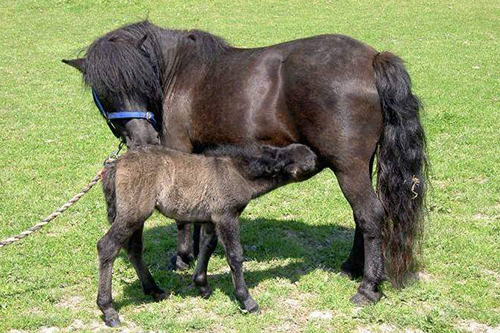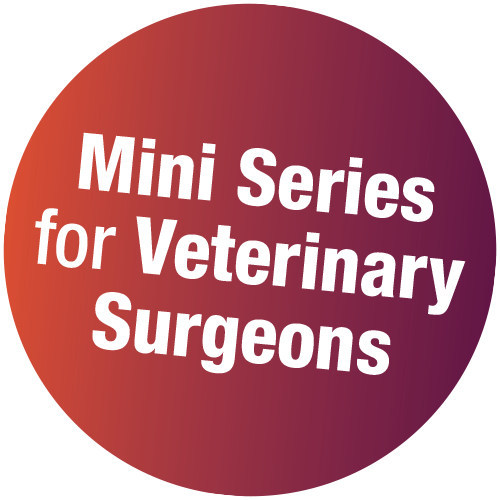MS244 – Keep calm and get in the car. A practical approach to equine emergencies
£447.00 (+VAT)
12 months access to recordings and course materials is included. Please note that these are webinar recordings and not live events. Full details on how to access the Mini Series will be emailed to you.
- Join Harry Carslake MA VetMB DipACVIM DipECEIM MRCVS and David Stack MVB MSc DipECVS MRCVS for three 2-hour online sessions
- Comprehensive notes to downloaded
- Self-assessment quizzes to ‘release’ your 8 hours CPD certification (don’t worry, you can take them more than once if you don’t quite hit the mark first time)
- A whole year’s access to recorded sessions for reviewing key points
- Superb value for money – learn without travelling
- Watch the recordings across all devices!
- This mini series will cover common equine emergencies which can cause stress levels to rise a bit higher than usual. It is aimed at recent graduates and more experienced colleagues either in mixed practice or looking to return after a career break.
It will take a practical approach to initial assessment and stabilisation of emergency cases, with tips on further management, including when you don’t have a precise diagnosis.
Both speakers have extensive experience in first opinion and referral practice in ambulatory and hospital settings and will be able to offer practical tips to help bring those stress level down when the phone rings.
Programme
Session 1
Colic, choke and respiratory distress
Presenter: Harry Carslake
Colic is a common emergency call out, and horses with moderate or persistent colic, and when you should advise referral can present a particular challenge. This session will focus on interpreting further diagnostic tests, including use of portable ultrasound to help with the decision. Management of cases that cannot be referred is also covered. Some chokes can be really challenging to clear. We will discuss recognition of chokes secondary to another condition, and techniques for relieving stubborn obstructions while protecting the airway and oesophageal mucosa. Finally, this session will cover acute management of respiratory distress, including emergency tracheostomy technique, recognition of pleural effusions and use of bronchodilators during acute onset asthma.
What you’ll learn:
- Decision making in moderate severity colics
- What to do when referral isn’t an option
- How can ultrasound help with assessment of colics?
- Respiratory distress – differentiating URT and LRT causes, and how to manage them
- Oesophageal choke: Techniques for shifting the more challenging impactions
Emergencies affecting the limbs – wounds and severe lameness
Presenter Dave Stack
Session 2 moves on to the limbs. The horse is non-weightbearing but where is the lameness coming from and what is the cause? We will discuss tips on assessment and management of these cases, including what to do when the underlying cause and location aren’t clear. Horses are very good at damaging themselves, and limb wounds are a very common emergency call out. The severity of the wound is not always related to it size, and in this session methods for determining whether a synovial cavity has been penetrated will be explored in depth.
What you’ll learn:
- Performing a full assessment of severe lameness
- Initial management and stabilisation of suspected fractures
- Recognising the hopeless prognosis case, and when it meets BEVA guidelines.
- General principles for initial approach to wounds
- Techniques for determining whether a wound has entered a joint or tendon sheath
- Options for managing synovial sepsis including the no referral case.
Foals, retained placenta and the painful eye
Presenter: Harry Carslake
Foals and eyes can deteriorate quickly with very few early warning signs. This session will give tips on spotting when things might go bad, and how to avoid that happening. Painful eyes can be very hard to examine, and we will cover techniques for making your eye exam as through and stress-free as possible. New born foals take most of our attention, but there is also the mare with a placenta that needs to pass and we will discuss techniques for helping it on its way.
What you’ll learn:
- How to fully assess the painful eye
- Updates on treatment of common ocular emergencies
- Quiet foals – how to recognise those that matter
- Resuscitation and stabilisation of flat foals, including initial fluid therapy
- Tips on safely removing a retained placenta and when further treatment is needed
The price includes all 3 sessions, notes and quiz – 8 hours of CPD
*No traffic jams, accommodation hassles, pet or childcare, rota clashes, locum fees ……….. just great CPD and a valuable ongoing resource.



